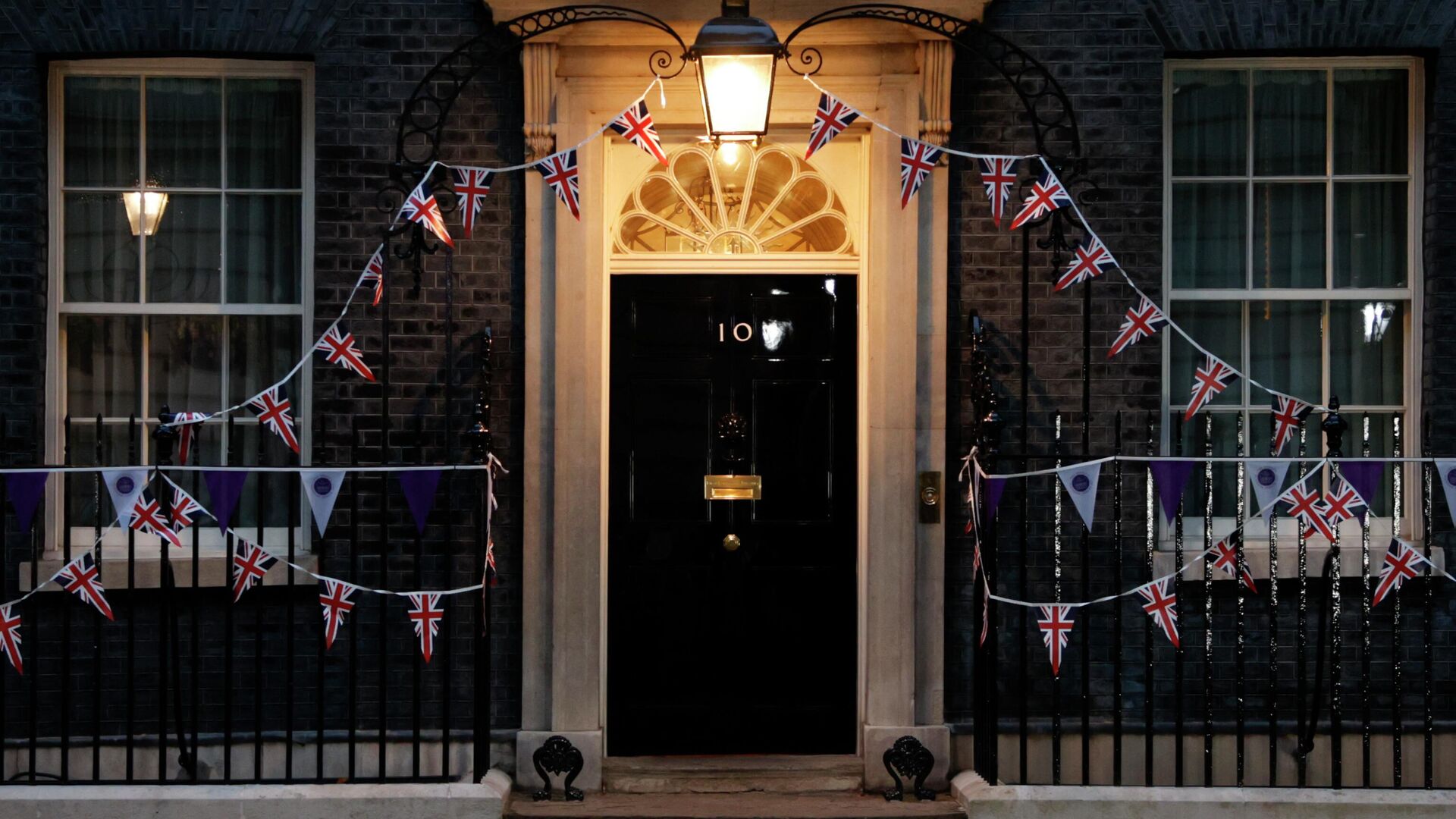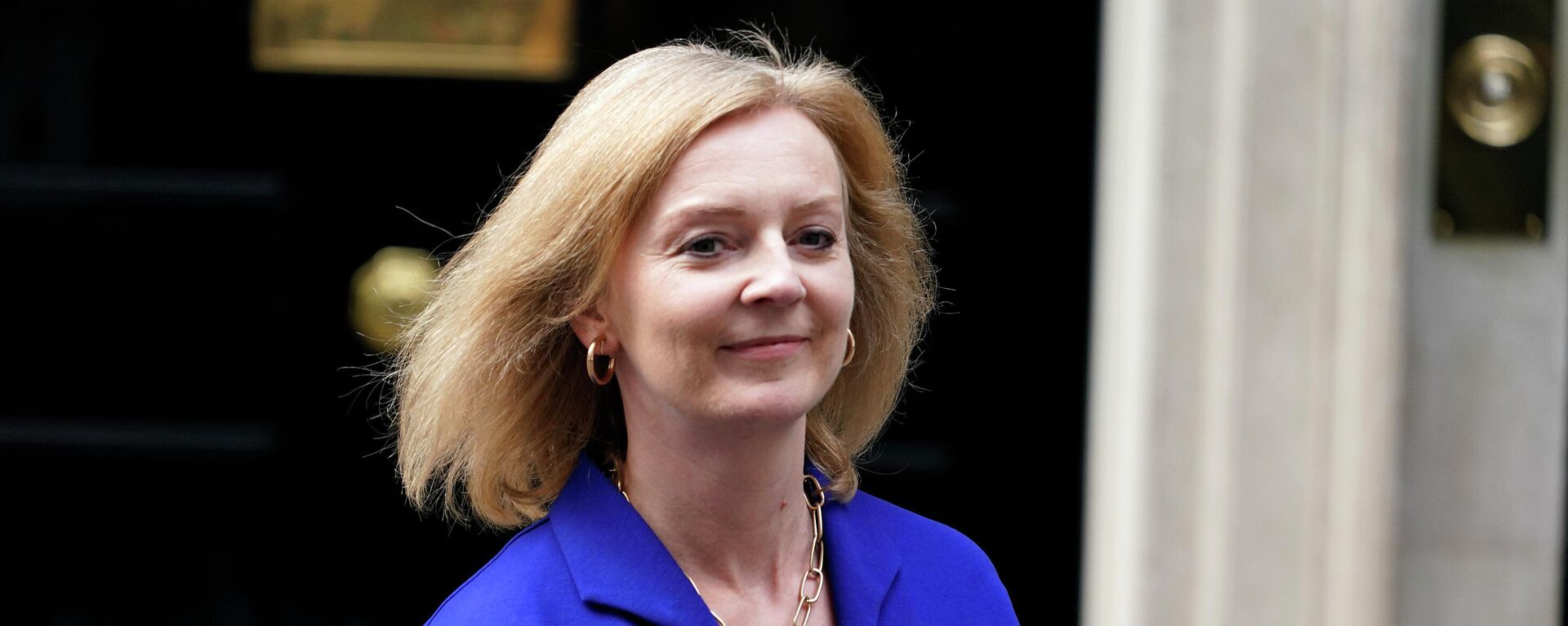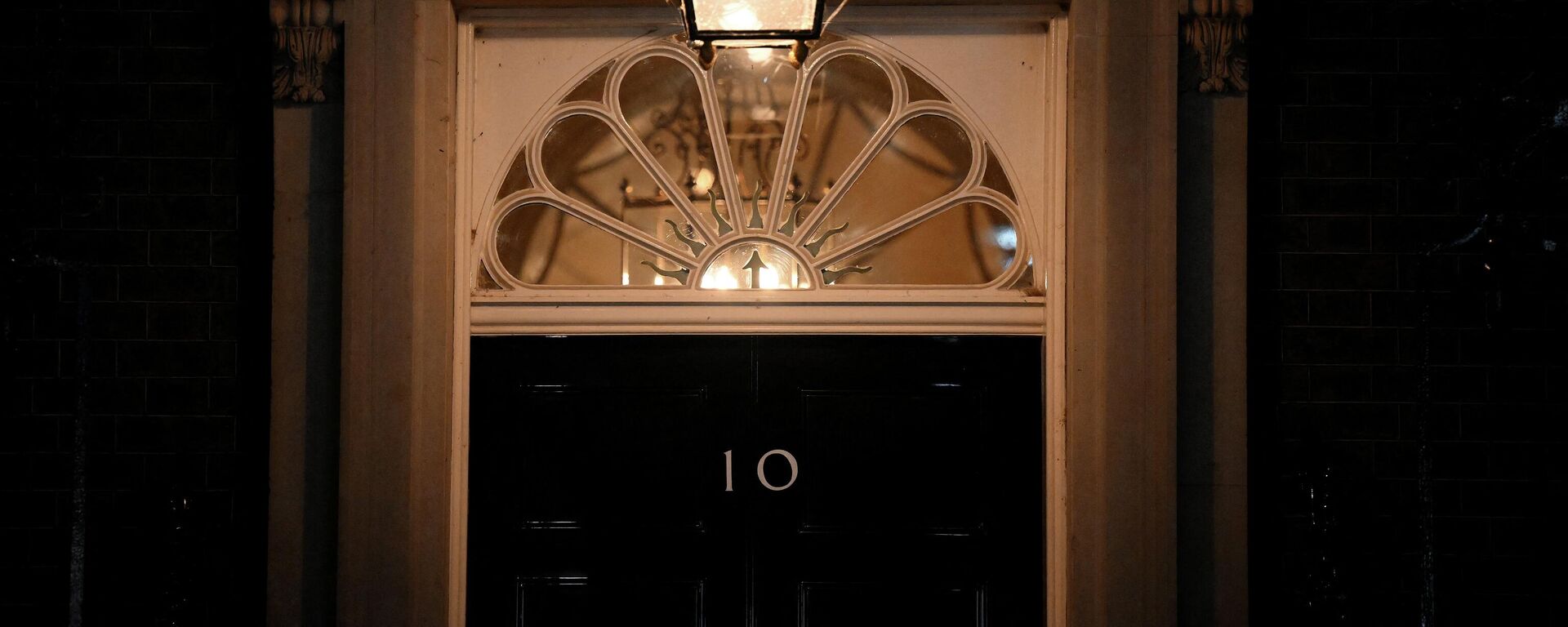Liz Truss Promises Tax Cuts ‘From Day One’ as Rivals of Favorite Rishi Sunak Vie for No 10
05:56 GMT 12.07.2022 (Updated: 15:20 GMT 28.05.2023)

© AP Photo / David Cliff
Subscribe
On Monday 11 July, the chairman of the backbench 1922 Committee, Sir Graham Brady, announced a timetable for the Tory leadership contest, triggered by the resignation of Boris Johnson as UK prime minister and Conservative party leader. Brady confirmed that final results will be announced on 5 September.
As the race to replace Boris Johnson as Conservative Party leader and prime minister officially kicks off this Tuesday, the emphasis has fallen firmly on each candidate's tax policies.
Launching her bid on Monday, Liz Truss, the UK Foreign Secretary, vowed to cut tax from “day one” in office, “to help people deal with the cost of living,” in an article for The Daily Telegraph.
Truss appeared to launch a direct attack at her rival and present frontrunner in the race, Rishi Sunak, and his policies as Chancellor of the Exchequer under Johnson’s premiership.
She also touted her intention to “get back to Conservative values”.
“I will fight the election as a Conservative and govern as a Conservative,” she stated.
Earlier, one of Truss’s closest allies, Kwasi Kwarteng, Secretary of State for Business, Energy and Industrial Strategy, openly hit out at the former chancellor’s economic plan, insisting his tax hikes did not “make any sense whatsoever”.
“Tax rates are very, very high. Do we want to continue down that path or reset and try something else?” he asked, as he added that Truss had argued privately against the national insurance rise introduced by Sunak to fund the NHS.
Conservative lawmaker Tom Tugendhat, pitching himself as a successor to Johnson, said he had been one of few Tory MPs to vote against the national insurance “tax on jobs”.
“I certainly think that we should be looking to lower taxes across every aspect of society,” he said.
The immediate prospect of tax cuts was also dangled by two other leadership candidates.
Penny Mordaunt, the trade minister, vowed to slash VAT on fuel by half and raise the income tax thresholds for basic and middle-earners in line with inflation, which hit a new 40-year high of 9.1 percent recently.
Nadhim Zahawi, the newly appointed Chancellor, also indicated that “nothing is off the table” regarding the tax issue, adding that corporation tax and income tax could be reduced if he were to succeed Johnson. He also promised to cut 20 percent from every government department as part of a fiscal discipline regarding public sector pay.
‘Fantasy Tax Cuts’
The "tax attack" on Rishi Sunak came as he gained an early lead in the race to replace Boris Johnson. After securing more public endorsements, bookmakers Ladbrokes has been giving odds of 5-1 for the former Chancellor to make it to the whittled-down shortlist of two candidates selected by MPs for party activists to choose between.
Sunak had been dubbed a "high tax Chancellor," accused of being responsible for major tax rises since he took over the office two years ago. The issue becomes a particularly contentious once the cost of living started to rocket with food, fuel and energy costs on the rise.
However, one of Sunak’s leading campaign supporters, former housing minister Robert Jenrick, was quick to accuse rival leadership contenders of “promising entirely unfunded tax cuts in the heat of a Conservative leadership election”.
So far, 11 MPs have publicly announced they want to replace Johnson, who quit on 7 July in the wake of damning scandals and the resignation of nearly 60 members of his government.
While Johnson continues as caretaker leader, nominations for the position to succeed him officially close on 12 July.
Truss reportedly urged other contenders on the Tory Right - Nadhim Zahawi, Suella Braverman, Kemi Badenoch and Priti Patel (who is still ostensibly undecided whether to join the field of contenders) – to join forces to back her. Otherwise, she warned, they all risked dropping the keys to No 10 into Sunak’s lap, reported the Daily Mail.
Truss’s concerns came as a poll of the Tory grassroots on Monday placed Mordaunt as their new favorite. In that case, Mordaunt and Sunak might be facing one another in the final run-off vote by party members, with the Tory Right kicked into the long grass.
“The Right of the party needs to make its mind up fast. If the Right don’t want Rishi Sunak to be prime minister then they need to unite behind a single candidate and that candidate is Liz. Liz is the only one who can keep the PM’s 2019 coalition together, who will take us back to properly Conservative principles on the economy and who has the experience to hit the ground running. But there is a real concern that if the Right splinters then Rishi and his supporters will be able to manipulate the contest and ensure that he faces someone to the Left of him in the final two,” an ally was cited as saying.
Sunak is poised to officially launch his bid today, unveiling former chancellor Lord Lamont as his backer, added the outlet.
Sunak will reportedly insist he won’t start to cut taxes until inflation has been “gripped” and brought under control. Reflecting on economic decisions he previously took, he will claim they had been some of the “most difficult choices in my life”.
Crowded Field of Contenders
Others to have announced their candidacy include Transport Secretary Grant Shapps, and former Health Secretaries Jeremy Hunt and Sajid Javid. Home Secretary Priti Patel has yet to decide on the issue.
The backbench 1922 Committee announced a timetable for the Tory leadership contest on Monday.
Candidates for the position of Conservative party leader and Britain's prime minister must secure the nomination of 20 MPs to get on the ballot, with nominations opening and closing on Tuesday 12 July.
The voting process itself kicks off on 13 July, with the first round of votes. A second ballot is "likely" to be held on Thursday, 14 July. A candidate must secure at least 30 votes in the first round to proceed.
Sir Graham Brady said that there will be more ballots next week, probably on Monday, adding that the parliamentary stages would be concluded "reasonably rapidly" before recess but with a "proper discussion in the party".
Lawmakers on the 1922 committee have said that 21 July is the de facto deadline for the final two candidates to be selected by Conservative lawmakers ahead of the summer recess at the House of Commons.
Brady was cited as telling Sky News they would “certainly” have the final two by then.
The new leader will be announced on 5 September after the summer recess, with Johnson remaining as caretaker prime minister until then.
Betting Odds:
— Election Maps UK (@ElectionMapsUK) July 11, 2022
Mordaunt: 5/2 ⬆️
Sunak: 5/2 ⬇️
Truss: 6/1 ⬇️
Tugendhat: 9/1 ⬆️
Badenoch: 14/1 ⬆️
Hunt: 29/1 ⬇️
Braverman: 33/1 ⬇️
Zahawi: 40/1 ⬇️
Javid: 50/1 ⬇️
Patel: 59/1 ⬆️
Shapps: 109/1 ⬇️
Via @oddschecker, 22:00.
Changes w/ yesterday.
According to Sky News' tally, only Sunak, Mordaunt and Tugendhat have reached the 20 nominations threshold. The outlet added that Sunak has reached the more than 30 votes needed to get through to the first round of voting.



